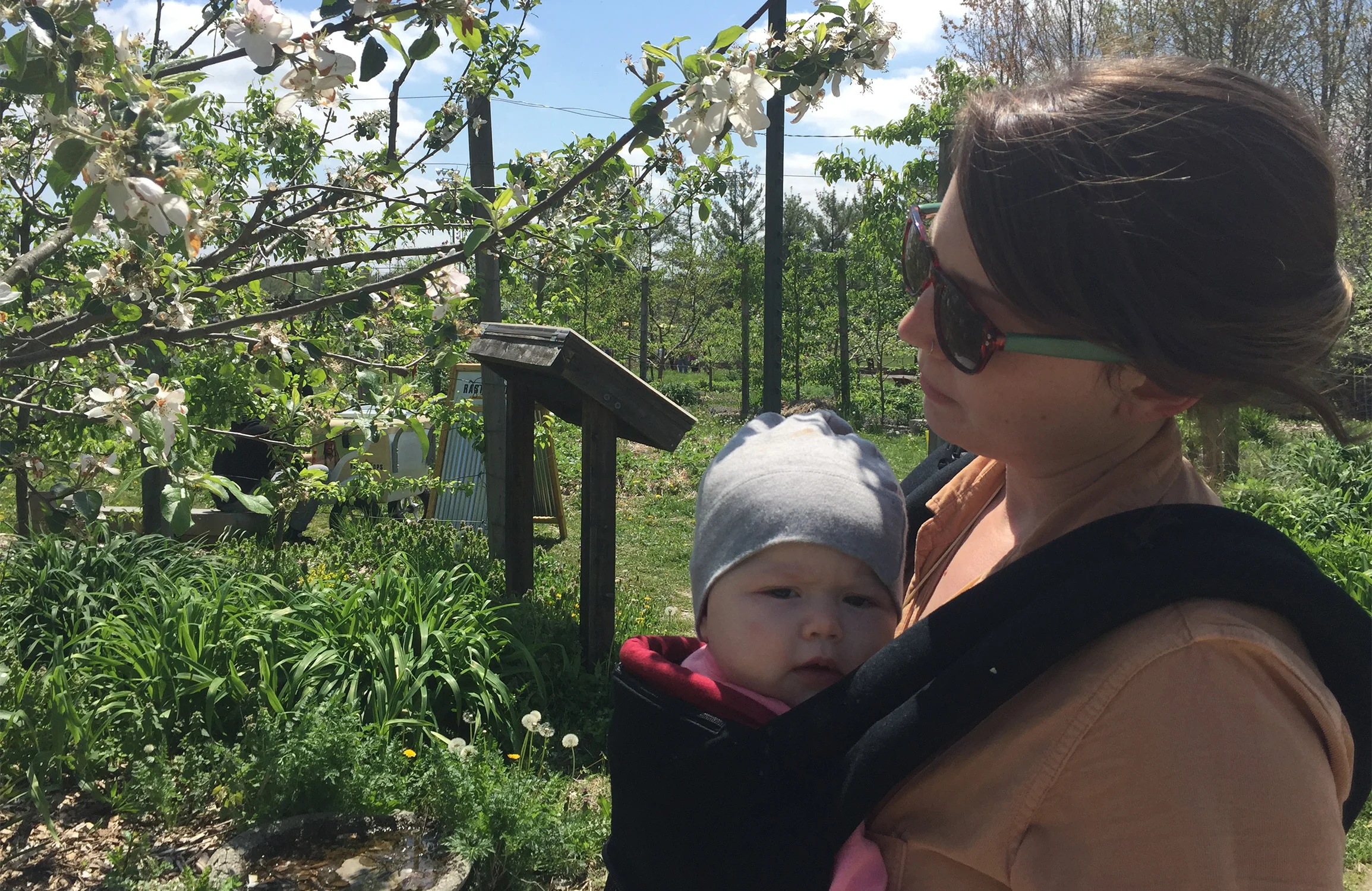dissertation first look
Megan Betz
My daughter has joined in my fieldwork & featured in my writing. This photo of us can also be found in my most recent publication in Geographical Review.
Earlier this week, I learned that my most recent article is out, with early online access. The piece will later be found in a special issue of Geographical Review dedicated entirely to methods in geography. I’m eager to see the other pieces and excited to share this, as it is my first solo-authored publication. Here it is: Pruning the community orchard: Methods for navigating human‐ fruit tree relations.
This piece is also a first look at my dissertation project, which uses multispecies methods to examine community orchard projects as sites of community formation and space for building new understandings of nature. This piece will serve as a starting point for one dissertation chapter, which focuses on dormant pruning. I’m excited to be fleshing out that chapter, and to be allowing my dissertation to take shape in an unconventional form.
The project will follow a seasonal structure, with a chapter dedicated to each season and a new layer of relations. In winter, when dormant pruning takes place, I examine the human-fruit tree relationship, looking at ideas of care, empathetic pruning, and the violence of pulling trees into shape. In spring, the lens zooms out to look at human-fruit tree-pest relations, looking at pest management and the killability of insects and microorganisms affecting the orchard’s fruit trees. However, rather than exploring the lives we can see having an impact on the trees, mainly insects, I hope to focus on the lives we only see as symptoms of disease: either bacterial fireblight or fungal black knot. In summer, attention turns to harvesting and an unanticipated member of the orchard community: squirrels, who have become the master harvesters of the orchard’s peaches and unexpected competition. Finally, I turn to the heart of the community orchard in the fall. In their season of celebration and community, I look at human relationships, exploring how developing closer relations with nonhumans in the orchard impacts the type of human relations and community that emerge in such places.
I look forward to writing and sharing more of these pieces with you. Check out the Geographical Review piece, and watch for the new methods issue coming soon.
